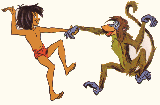Notes on counselling
Dealing with fear in children — personal notes
Quite often mothers complain to me about the fears and feelings of insecurity in their children. If the child is very young and there is no obvious family discord, the first thing that I ask is whether the child sleeps at night with the night-lamp on. In most cases the answer is yes. The child has not learnt to enjoy darkness, not been allowed to experience darkness. Has he not played that game of blind man’s buff? Inadvertently, the mother thinks the night-lamp will allay the child’s fear, but actually it increases the insecurity.
Mothers often think that love alone is the most important factor in building a sense of security in children. That is partially true. Love is the strongest factor to build confidence in the child but it is not the only factor. I have to often remind mothers that God has not only given them the capacity of love but also the potential of wisdom. And in this case, in the perspective of Integral Health, wisdom means a development of all aspects of consciousness as they progressively unfold in the child.
The child learns the world through the experience of the senses. Mothers know this instinctively. That is why the first game the mother plays with the child is that of peek-a-boo. When the mother hides behind the curtain, she is lost to the baby. When the curtain is drawn back and the baby re-discovers the mother, one should behold that amazement, that awe, that exclamation of joy in the baby. When that game is played again and again, the baby understands that the mother-figure is a permanent phenomenon. It is through such sensory games that the sense of security develops. The baby realises that even if lost, his or her mother will surely return. The baby realises that when in danger, mother will always be there. It is only then that the baby, without fear, can explore the world around, adventuring below the table, behind the cupboard, above the chair. Thus is laid the sense of security that helps the child to cope with fear. Together with the sense of security, an instinctive faith develops. That is why when the baby falls and gets hurt, the mother scolds the floor and tells the baby that nothing has happened. The baby believes and is upright again without fear or pain.
When a bit older and the baby becomes a child, he or she has to be taught to experience all the vagaries of nature. He must enjoy the sunlight, he must enjoy the rain, he must enjoy the moonlight, and he must enjoy the darkness. A child’s education starts by sense-training. It is not enough to stimulate the senses and just expose the child to multiple situations. It is important that the child must have the most fulfilling, complete and perfect sense-experience.
How do we ensure that a child does not have a partial or incomplete sensory experience? The child must be allowed to have the full experience, must not be disturbed in the middle or unduly interfered with. If the child is exposed to a piece of music, he must be allowed to hear the full piece, the mother should not switch off the music-player according to her whims. If the child is enjoying the rain, he or she should not be rebuked. If the child plays with mud or sand, the mother should not be fussy. If the child is being fed and enjoys the food, the mother should attend to the feeding and appreciate this time with the child without being distracted by her mobile phone calls or her favourite TV serials. And in the middle of the feeding game, if the child gets lost in a world of fancy and stops eating for a while, the mother must patiently wait till he or she returns from the worlds of fairies, Superman and Tom and Jerry.
Sensory-training needs to be introduced in play situations too. And if such play is tagged with an experience of awe, then a foundation for security is laid. Thus when children are taken to watch horses or allowed to soak their feet in the water of a lake, they can have an overwhelming experience that helps to dispel fear and instil confidence. Later a graded programme of nature study consolidates this poise of security. Nature herself is a great teacher. And when the child experiences nature and can joyfully and creatively identify with Tarzan or Mowgli, what is there to fear? Tarzan is fearless. Mowgli is dauntless.
Sensory training in children reaches its perfection when, along with the training of the five senses, the aesthetic sense is also developed. One does not have to be a great artist to have an aesthetic sense. Children should be exposed to beauty in all its varied forms. There is beauty in the flower, in the butterfly, in the sunrise, in the lullaby mother sings and in that pretty Barbie doll father brought. To learn to appreciate beauty brings fulfilment in life. A childhood trained to its fullest potential can cope with the hazards on the way, can absorb fear, anxiety and insecurity, and can blossom with joy into a robust adolescence.
Dr. Soumitra Basu, a practising psychiatrist, is the Director of a new school of psychology, the Mira Vision Trust. He is also one of the editors of NAMAH.
Share with us (Comments, contributions, opinions)
When reproducing this feature, please credit NAMAH, and give the byline. Please send us cuttings.


